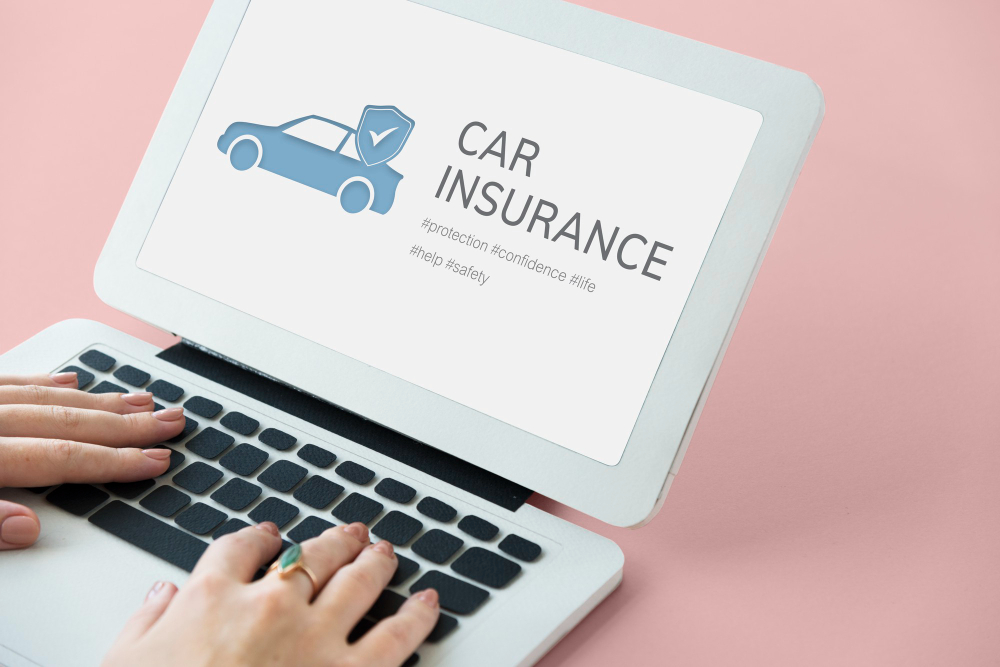The world of business can be unpredictable. While most business owners spend time planning and preparing for the highs and lows, there are some aspects they might overlook. Enter Equipment Breakdown Coverage: a commonly misunderstood yet essential component of a comprehensive business insurance plan. Like any insurance option, the question always arises: Is this the right fit for your company? Let’s delve in and find out.
The Basics: Understanding Equipment Breakdown Coverage
In essence, Equipment Breakdown Coverage helps to protect businesses from unexpected costs that arise from mechanical, electrical, or electronic equipment breakdown. Think about computer systems crashing, air conditioning giving out on a sweltering summer day, or your industrial freezer stopping during the busiest sales week. The costs to repair or replace these can be exorbitant.
So, how does Business Insurance tie in? Well, a comprehensive business insurance policy safeguards a business from many potential financial pitfalls. However, many standard business insurance packages don’t automatically include Equipment Breakdown Coverage. Hence, it’s a valuable add-on or standalone policy to consider.
Why It Matters
Cost Savings
Equipment breakdowns, unfortunately, are a reality that many businesses face. These unexpected mishaps can become a heavy financial burden in a blink of an eye. Suppose your business machinery malfunctions – it’s not just about the immediate repair costs. You’re also considering potential lost revenues if operations grind to a halt. Let’s say you have savings earmarked for such emergencies; even then, draining these reserves for equipment failures can cripple other critical functions. Repairs or replacements can lead to financial strain, especially when the price tags run into the thousands. Equipment Breakdown Coverage is a shield against these unexpected costs. When covered, you’re not scrambling to gather funds, instead, you continue focusing on growth and other vital areas of your business.
Business Continuity
Imagine it’s the peak business hour, and a crucial piece of equipment gives out. A bakery with a broken oven, a gym where treadmills suddenly stop, or as previously mentioned, a restaurant with a malfunctioning refrigerator. The implications are immediate – disrupted operations, disgruntled customers, and potential loss of revenue. In today’s competitive market, even a day of halted operations can result in significant setbacks. Equipment Breakdown Coverage in your business insurance savings portfolio acts as a safeguard. It’s not merely about fixing what’s broken; it’s about the assurance that your business won’t be down for long. With the right coverage, you can swiftly address these issues, ensuring minimal disruption, retaining customer trust, and importantly, maintaining revenue streams.
Peace of Mind
Owning a business is a rewarding endeavor, but it also comes bundled with its fair share of stressors. While you juggle multiple responsibilities, the last thing you want on your plate is the anxiety of equipment failures. Equipment is the backbone of operations for many businesses, and any malfunction can send ripples of concern. Here’s where having an optimal business insurance plan comes into play. With Equipment Breakdown Coverage as part of your insurance strategy, you’ve essentially bought peace of mind. It’s the reassurance that even if things go south, you have a robust plan to fall back on. You can operate each day with confidence, knowing that unforeseen breakdowns won’t leave you in a lurch, both operationally and financially.
Evaluating the Need
The decision to invest in Equipment Breakdown Coverage isn’t one-size-fits-all. It depends on various facets of your business and its individual needs. Let’s delve deeper into the critical considerations to help you determine if this coverage aligns with your business model.
Nature of Business
Every business is unique in its operations and dependency on equipment. For companies where machinery is at the heart of their operations, such as manufacturing units, restaurants, or IT firms, a malfunction can mean significant downtimes and revenue losses. A manufacturing unit might face halted production lines, while a restaurant could be dealing with spoiled ingredients due to refrigeration failure. Conversely, businesses that don’t rely heavily on equipment, like a consulting agency or a freelance content creator, may not find as much value in this coverage. They may operate seamlessly even if a minor piece of equipment fails. Thus, gauging the centrality of equipment to your business functions is paramount.
Age and Condition of Equipment
Time is not always kind to machinery. As equipment ages, its efficiency might decline, and it may become more susceptible to breakdowns. Wear and tear, prolonged usage, and lack of timely maintenance can further exacerbate the situation. For businesses that utilize older machinery or those that haven’t had their equipment serviced in a while, the risk of malfunctions is considerably higher. If you recognize your equipment showing signs of age or frequent issues, it would be prudent to consider adding Equipment Breakdown Coverage to your business insurance plan.
Financial Health of Business
Financial resilience varies from one business to another. While some enterprises boast hefty emergency funds or significant profit margins that allow them to weather unexpected insurance costs , others operate on slim margins where an unplanned expense could spell disaster. It’s essential to introspect: If a critical piece of equipment failed tomorrow, would your business finances take a significant hit? Would you be scrambling to cover repair or replacement costs? If the answer leans towards uncertainty or financial stress, integrating Equipment Breakdown Coverage into your business insurance might be less of a choice and more of an imperative.
Benefits Outweighing the Costs?
Insurance, while it provides a protective blanket, does come with its own set of costs. And like all financial commitments in the realm of business, it’s vital to ensure that the benefits justify the costs. Equipment Breakdown Coverage, while immensely beneficial, isn’t exempt from this scrutiny. Let’s break down how to determine its worth for your enterprise.
Quantitative Analysis: The Direct Costs of Business Insurance
To begin with, focus on the tangible, numerical aspects. Begin by sourcing quotes for the coverage. These numbers, however, shouldn’t be examined in isolation. Place the premium costs side-by-side with the potential expenses you’d incur for repairing or replacing vital equipment. Here’s a practical approach:
- List down your business’s core equipment.
- Estimate the repair or replacement costs for each.
- Sum these up to get a potential out-of-pocket expense you’d be looking at in the absence of coverage.
- Now, compare this potential financial drain against the premium you’d be paying. More often than not, the disparity between the two makes the value of the insurance palpable.
Qualitative Analysis: The Indirect Implications
Moving beyond the straightforward numbers, there’s a world of non-monetary implications that can impact a business in the wake of equipment failure. These might not always have a clear dollar value, but their influence on the business’s health is undeniable.
Operational Downtime
Every hour that your business isn’t operational due to equipment failure translates to lost revenue. This isn’t just about the immediate loss but also the ripple effect. Extended downtimes can strain your relationship with partners or suppliers and even lead to contractual penalties in some cases.
Customer Retention
In today’s age of instant gratification, customers expect seamless service. A prolonged breakdown could mean unserved customers who, in the worst-case scenario, might turn to competitors. The cost of acquiring a new customer is often higher than retaining an existing one, making this a crucial factor to consider.
Mental Well-being
The mental tolerance of dealing with unexpected crises shouldn’t be underestimated. The stress, the long hours, and the anxiety of unexpected expenses can weigh heavily on business owners. The peace of mind that comes with having business insurance provides an intangible yet significant benefit.
When you weave in these indirect implications with the direct costs, the comprehensive picture often highlights the unmistakable value of Equipment Breakdown Coverage. As with all decisions in business, it’s about foresight, understanding potential risks, and preparing for them effectively.
Conclusion
In the vast world of business insurance, understanding each component can feel overwhelming. Equipment Breakdown Coverage, while not universally applicable, offers tangible benefits to many businesses. It’s an insurance piece that provides a buffer against the unforeseen, helping to ensure that equipment failures don’t derail your operations or financial stability.
If you’re aiming to fortify your business against unexpected hurdles, revisiting your business insurance and considering the addition of Equipment Breakdown Coverage is an excellent place to start. Remember, in the unpredictable arena of business, it’s not just about surviving but thriving, even when faced with challenges.
Learn More:
Business Insurance Basics That Every Business Owner Must Know



